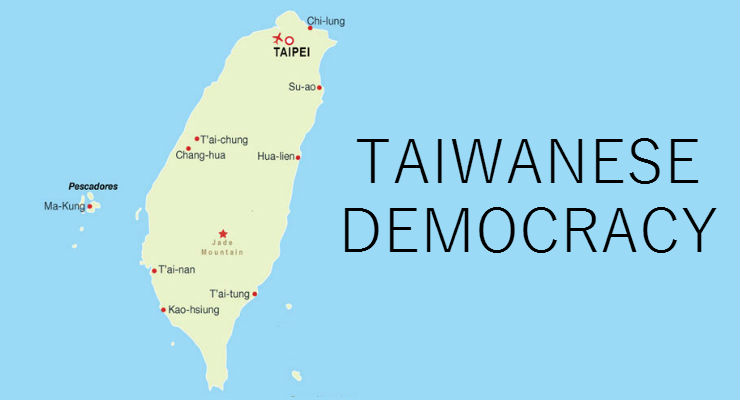
Taiwan’s ruling party, which has cold relations with the island’s political rival, China, will be tested at the polls Saturday when voters cast ballots in midterm local elections that may impact the presidential race of 2020.
The ruling Democratic Progressive Party risks losing two or three bellwether seats, enough to hobble but not kill President Tsai Ing-wen’s expected campaign for another four years in office, local political analysts say.
Tsai won by a landslide in 2016 after voters organized against her party’s chief rival, the Nationalists, because of their eight years of engagement with Beijing. But now some voters want Tsai to craft a more active China policy.
“The main thing, this year’s election is a midterm exam for 2016 and the test will examine your ability to govern plus whether you’ve kept promises to the people,” said Chao Lee Ying-chi, a Taipei city borough chief candidate who was out campaigning this week.
Political test
The ruling party faces especially tight races to retain mayoral posts in Kaohsiung and Taichung, two cities of more than a million people each. Dropping those seats would be a “huge defeat,” said Raymond Wu, managing director of Taipei-based political risk consultancy e-telligence.
Overall winners in Taiwan’s local elections generally get a boost in exposure and funding that’s useful for the next presidential race. The ruling party won 13 of Taiwan’s 22 mayoral and county magistrate seats in 2014, leaving the Nationalists with six and independent people with three.
Tsai irks China by declining to accept its dialogue condition that both sides belong to the same country. Beijing has reacted by flying military aircraft near Taiwan, cutting back group tourism and cramping Taiwan’s foreign relations.
Tsai received just a 31.2 percent approval rating in August, per a Taiwanese Public Opinion Foundation survey. But she has earned support for domestic policies such as a work time-off bill and cuts to public employee pensions. Unemployment has fallen under her watch and the economy strengthened.
“They’re still the ruling party at the central level, so I don’t think (this week’s elections) will impact that aspect of it too much,” Wu said.
Complex voter demands
Taiwan’s 19.1 million voters often pick local leaders based on contributions to public infrastructure and perceptions of whether they can improve local economies, campaign staff people say. Voters will also bear in mind the ruling party’s performance, said Hung Lee-chi, spokesman for ruling party-backed Taipei mayoral candidate Yao Wen-chih.
Voters organized against the Nationalists before the 2014 midterms and the 2016 presidential campaign after former President Ma Ying-jeou had accepted China’s dialogue condition. Talks with China during his term led to more than 20 agreements on trade, transit and investment.
China has claimed sovereignty over self-ruled Taiwan since the 1940s, despite opinion surveys that show most Taiwanese prefer autonomy. Many Taiwanese worried that Ma was getting too close to China.
But now a lot of voters want Tsai to take more action on China. Some advocate more deals giving Taiwan access to the $12 trillion-plus Chinese economy, while others want the government to take a tougher stance against what they see as bullying by Beijing since 2016.
“We Taiwanese people have the urge to be independent, it’s that simple,” said Wu Chien-hui, 45, a Taiwan housewife who showed up for an October rally to push for Taiwan’s legal independence from China, a red line for Beijing. “We obviously hope to support candidates who advocate Taiwan autonomy.
“The Democratic Progressive Party is like China,” she said. “They’ll hear our voices but ignore us, and the Nationalist Party will definitely ignore us, because they didn’t want us to be independent in the first place.”
Inaction toward China, combined with slow wage growth and other domestic matters, have given Taiwanese a sense of “malaise,” Wu, of e-telligence, said.
“It’s a syndrome of feeling like you’re boxed in and there’s no way out,” he added.
On Saturday, voters will choose from among 20,863 candidates running for 11,047 public offices, mostly at the smallest political levels, such as urban boroughs.
Leave a Reply